Colorectal Cancer
How to submit an article:
- Registered users can submit any published journal article that has a unique DOI (Digital Object Identifier) name or link to Research Hub.
- For example, you can paste the full DOI link:
https://doi.org/10.1109/5.771073or just the DOI name:10.1109/5.771073into the field above and click submit. - The person who is first to submit a valid article to Research Hub will forever be credited for it, and every article submission earns you +6 Research Points.
Related Topics
Published research studies are articles that present the findings of original research that has undergone a peer-review process and has been made publicly available in scholarly journals, books or other media.
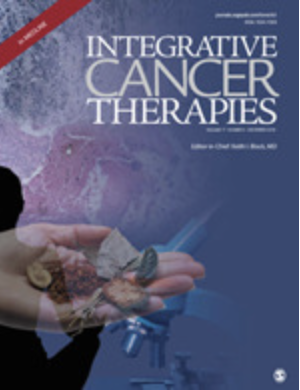
Efficacy and Safety of Compound Kushen Injection for Advanced Colorectal Cancer: A Systematic Review and Meta-Analysis of Randomized Clinical Trials with Trial Sequential Analysis
2024 Jan Integrative Cancer Therapies Wu J, Ma X, Wang X, Zhu G, Wang H, Zhang Y, et al.
Meta-Analysis Systematic Review Ku Shen Colorectal CancerAdding Compound Kushen Injection (CKI), a traditional Chinese medicine, to chemotherapy treatment enhanced treatment response and reduced side effects in advanced colorectal cancer patients.
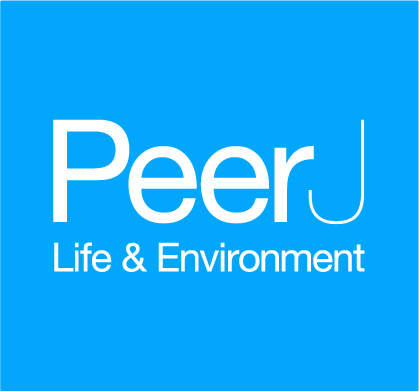
Advances on the anti-tumor mechanisms of the carotenoid Crocin
2023 Jun 29 PeerJ Bao X, Hu J, Zhao Y, Jia R, Zhang H, Xia L
Review Article Crocin Liver Cancer Saffron Breast Cancer Stomach Cancer Colorectal Cancer Cervical Cancer Anti-TumourCrocin, a compound derived from saffron, has shown considerable potential in hindering tumor growth and improving immune status, across various malignant tumors.

Bee Products and Colorectal Cancer—Active Components and Mechanism of Action
2023 Mar 27 Nutrients Moskwa J, Naliwajko SK, Dobiecka D, Socha K
Bee products, such as honey and propolis, contain bioactive components with potential anti-colon cancer properties, and there is some evidence suggesting their role in the prevention of colon cancer.
Review Article Bowel Cancer
Association of Dietary Carrot/Carotene Intakes With Colorectal Cancer Incidence and Mortality in the Prostate, Lung, Colorectal, and Ovarian Cancer Screening Trial
2022 Jun 17 Frontiers in Nutrition Jiang Z, Chen H, Li M, Wang W, Fan C, Long F
Cohort Study Carotene Colorectal Cancer CarrotModerate consumption of carrots is associated with a lower incidence of colorectal cancer, implying a potential cancer prevention effect in a certain dose-range.
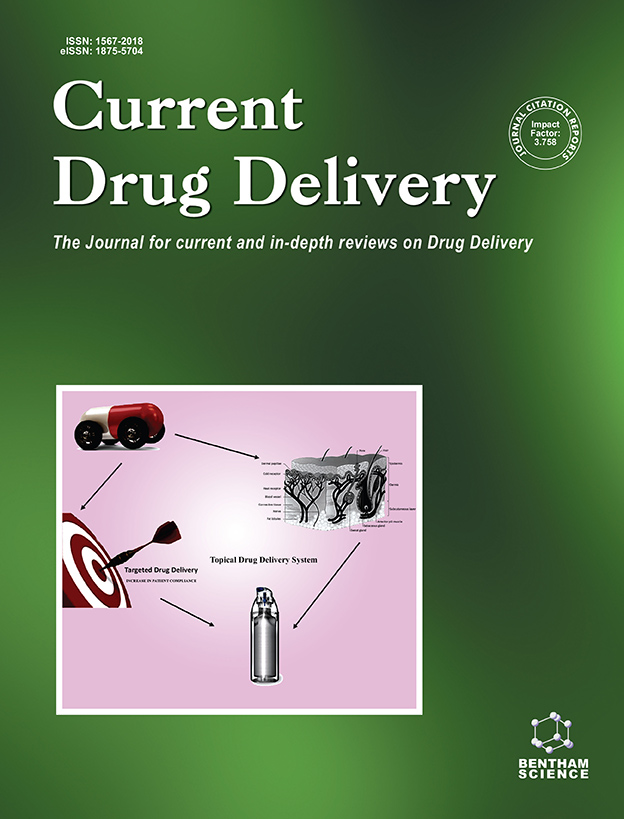
Pomegranate, its Components, and Modern Deliverable Formulations as Potential Botanicals in the Prevention and Treatment of Various Cancers
2021 Dec Current Drug Delivery Hussein L, Gouda M, Buttar HS
Review Article Colorectal Cancer Prostate Cancer Anticancer PomegranatePomegranate juice and its bioactive components may serve as cost-effective, next-generation non-pharmacologic anticancer therapies, particularly against colorectal and prostate cancer.
Research insights are moderated by the Research Hub team and offer an at-a-glance overview of interesting research findings.

2024 Integrative Cancer Therapies
Adding Compound Kushen Injection (CKI), a traditional Chinese medicine, to chemotherapy treatment enhanced treatment response and reduced side effects in advanced colorectal cancer patients.
Meta-Analysis Ku Shen
Efficacy and Safety of Compound Kushen Injection for Advanced Colorectal Cancer: A Systematic Review and Meta-Analysis of Randomized Clinical Trials with Trial Sequential Analysis
Wu J, Ma X, Wang X, Zhu G, Wang H, Zhang Y, et al.

2023 PeerJ
Crocin, a compound derived from saffron, has shown considerable potential in hindering tumor growth and improving immune status, across various malignant tumors.
Review Article Anti-Tumour Breast Cancer Cervical Cancer Crocin Liver Cancer
Advances on the anti-tumor mechanisms of the carotenoid Crocin
Bao X, Hu J, Zhao Y, Jia R, Zhang H, Xia L

2022 Frontiers in Nutrition
Moderate consumption of carrots is associated with a lower incidence of colorectal cancer, implying a potential cancer prevention effect in a certain dose-range.
Cohort Study Carotene Carrot
Association of Dietary Carrot/Carotene Intakes With Colorectal Cancer Incidence and Mortality in the Prostate, Lung, Colorectal, and Ovarian Cancer Screening Trial
Jiang Z, Chen H, Li M, Wang W, Fan C, Long F

2021 Current Drug Delivery
Pomegranate juice and its bioactive components may serve as cost-effective, next-generation non-pharmacologic anticancer therapies, particularly against colorectal and prostate cancer.
Review Article Anticancer Pomegranate Prostate Cancer
Pomegranate, its Components, and Modern Deliverable Formulations as Potential Botanicals in the Prevention and Treatment of Various Cancers
Hussein L, Gouda M, Buttar HS

2020 Nutrients
Ginger has been effective in a majority of studies, including those that examined the alleviation of nausea and vomiting of pregnancy, digestive function, improvement in the expression level of markers for colorectal cancer risk, and anti-inflammatory functions.
Systematic Review Anti-Inflammatory Bowel Cancer Digestive Health Ginger Morning Sickness
Ginger on Human Health: A Comprehensive Systematic Review of 109 Randomized Controlled Trials
Anh NH, Kim SJ, Long NP, Min JE, Yoon YC, Lee EG, et al.
Review Articles
Review articles summarise and critically evaluate the current state of research on a specific topic or field by synthesising multiple primary research studies.

Efficacy and Safety of Compound Kushen Injection for Advanced Colorectal Cancer: A Systematic Review and Meta-Analysis of Randomized Clinical Trials with Trial Sequential Analysis
2024 Jan Integrative Cancer Therapies Wu J, Ma X, Wang X, Zhu G, Wang H, Zhang Y, et al.
Meta-Analysis Systematic Review Ku Shen Colorectal CancerAdding Compound Kushen Injection (CKI), a traditional Chinese medicine, to chemotherapy treatment enhanced treatment response and reduced side effects in advanced colorectal cancer patients.

Advances on the anti-tumor mechanisms of the carotenoid Crocin
2023 Jun 29 PeerJ Bao X, Hu J, Zhao Y, Jia R, Zhang H, Xia L
Review Article Crocin Liver Cancer Saffron Breast Cancer Stomach Cancer Colorectal Cancer Cervical Cancer Anti-TumourCrocin, a compound derived from saffron, has shown considerable potential in hindering tumor growth and improving immune status, across various malignant tumors.

Bee Products and Colorectal Cancer—Active Components and Mechanism of Action
2023 Mar 27 Nutrients Moskwa J, Naliwajko SK, Dobiecka D, Socha K
Bee products, such as honey and propolis, contain bioactive components with potential anti-colon cancer properties, and there is some evidence suggesting their role in the prevention of colon cancer.
Review Article Bowel Cancer
Pomegranate, its Components, and Modern Deliverable Formulations as Potential Botanicals in the Prevention and Treatment of Various Cancers
2021 Dec Current Drug Delivery Hussein L, Gouda M, Buttar HS
Review Article Colorectal Cancer Prostate Cancer Anticancer PomegranatePomegranate juice and its bioactive components may serve as cost-effective, next-generation non-pharmacologic anticancer therapies, particularly against colorectal and prostate cancer.

Effectiveness of Herbal Medicine for Leukopenia/Neutropenia Induced by Chemotherapy in Adults with Colorectal Cancer: A Systematic Review and Meta-analysis
2021 Jan 11 Integrative Cancer Therapies Yan SH, Feng S, Xu Y, Yan YZ, He B, Sun LY, et al.
Chinese Herbal Medicine (CHM) may relieve neutropenia/leukopenia induced by chemotherapy in adults with colorectal cancer.
Systematic Review Meta-Analysis Chemotherapy Leukopaenia NeutropaeniaClinical Trials
Clinical trials are research studies that involve people and are conducted to evaluate the safety and efficacy of new treatments or interventions, such as drugs, medical devices, or behavioural therapies.
Study Protocols
Published study protocols are detailed plans that outline the objectives, methodology, statistical analyses, and organisation of a research study that have been made publicly available for others to review and use as a reference.
Presentation Slides

Meta-Analysis
Adding Compound Kushen Injection (CKI), a traditional Chinese medicine, to chemotherapy treatment enhanced treatment response and reduced side effects in advanced colorectal cancer patients.
Wu J, Ma X, Wang X, Zhu G, Wang H, Zhang Y, Li J

Review Article
Crocin, a compound derived from saffron, has shown considerable potential in hindering tumor growth and improving immune status, across various malignant tumors.
Bao X, Hu J, Zhao Y, Jia R, Zhang H, Xia L

Cohort Study
Moderate consumption of carrots is associated with a lower incidence of colorectal cancer, implying a potential cancer prevention effect in a certain dose-range.
Jiang Z, Chen H, Li M, Wang W, Fan C, Long F

Review Article
Pomegranate juice and its bioactive components may serve as cost-effective, next-generation non-pharmacologic anticancer therapies, particularly against colorectal and prostate cancer.
Hussein L, Gouda M, Buttar HS

Systematic Review
Ginger has been effective in a majority of studies, including those that examined the alleviation of nausea and vomiting of pregnancy, digestive function, improvement in the expression level of markers for colorectal cancer risk, and anti-inflammatory functions.
Anh NH, Kim SJ, Long NP, Min JE, Yoon YC, Lee EG, Kim M, Kim TJ, Yang YY, Son EY, Yoon SJ, Diem NC, Kim HM, Kwon SW.

Cohort Study
Regular consumption of raw carrots, specifically 2-4 or more per week, is associated with a decreased risk of colorectal cancer.
Deding U, Baatrup G, Christensen LP, Kobaek-Larsen M

Cohort Study
Traditional Chinese Medicine when combined with Western methods, could improve survival rates in patients with colorectal cancer.
Yeh MH, Chiu HP, Wu MC, Koo M, Lin NW, Liao KK, Yeh CC, Li TM
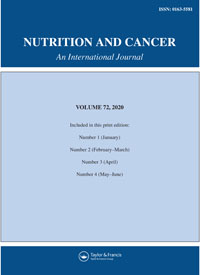
Review Article
Kiwifruit supplementation may be associated with direct and indirect anticancer effects, the former likely due to ascorbic acid-mediated reduction of DNA oxidative injury and cytotoxic effect on cancer cell lines.
Lippi G, Mattiuzzi C

Systematic Review
Coffee consumption shows a protective effect against colorectal and colon cancers, particularly among US subjects and European men.
Sartini M, Bragazzi N, Spagnolo A, Schinca E, Ottria G, Dupont C, Cristina M
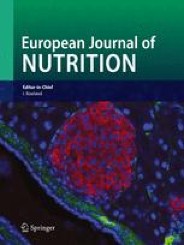
Systematic Review
Consumption of chocolate shows a possible slight reduction in risk for coronary heart disease and stroke, with no association with other chronic diseases studied.
Morze J, Schwedhelm C, Bencic A, Hoffmann G, Boeing H, Przybylowicz K, Schwingshackl L

Experimental Study
Lemongrass extract has potential as a supplement to chemotherapy, reducing colon cancer growth, enhancing treatment effectiveness, and mitigating side effects like weight loss.
Ruvinov I, Nguyen C, Scaria B, Vegh C, Zaitoon O, Baskaran K, Mehaidli A, Nunes M, Pandey S

Systematic Review
We found low-to moderate-quality evidence for the efficacy and safety of acupuncture for recovery after surgery in colorectal cancer patients.
Kim KH, Kim DH, Kim HY, Son GM.
Executive Summary
Write an executive summary in the form of a blog article on the topic of "Research into Chinese medicine treatment for Colorectal Cancer" summarising the research below and using language that can be easily understood by patients and avoiding medical jargon using a professional and caring tone of voice.
Write an executive summary in the form of a blog article on the topic of "Researched Chinese medicine treatments for Colorectal Cancer" summarising the research below in an objective and easy to understand way, and using language that can be easily understood by patients. Group the article into Chinese medicine treatments first, followed by nutrition and other treatments. Avoid using medical jargon and use a professional and caring tone of voice.
Write me a concise but easy to understand executive summary on the topic of "Chinese medicine treatments for Colorectal Cancer" based on the following research that I will give you. Your summary should be 2 paragraphs long in Australian English spelling and include references to the studies.
A Meta-Analysis published in 2024 in the journal Integrative Cancer Therapies found that Adding Compound Kushen Injection (CKI), a traditional Chinese medicine, to chemotherapy treatment enhanced treatment response and reduced side effects in advanced colorectal cancer patients. This study systematically collected data from a myriad of sources including, but not limited to, PubMed, the Cochrane Library, and ClinicalTrials.gov up to April 20, 2024. An assessment tool, ROB2, was used to measure the quality of the included trials, while data analysis was done using Stata 16. Publication bias was evaluated with the funnel plot and Egger's test. To calculate the final required sample size in this meta-analysis and verify whether the results presented a stable conclusion, trial sequential analysis was used. The data collected from these sixteen trials, consisting of 1378 patients showcased that when compared to chemotherapy alone, the combination of CKI and chemotherapy resulted in improved response rates and enhancement of the patient's performance status. Furthermore, this combination therapy was associated with fewer adverse reactions like leukopenia, thrombocytopenia, gastrointestinal reactions, and liver damage. Patients also exhibited high CD4 ratios and comparatively low CD8 T cell ratios. A subgroup analysis further demonstrated that the response rates improved significantly when CKI was combined with specific chemotherapy regimens. Overall, this data strongly suggests that the addition of CKI to chemotherapy provided statistically significant and clinically relevant improvements in treatment response rates, patient wellbeing, reduction in adverse reactions, and enhanced immune function.
A Review Article published in 2023 in the journal PeerJ found that Crocin, a compound derived from saffron, has shown considerable potential in hindering tumor growth and improving immune status, across various malignant tumors. The methodology for the study involved an in-depth review of modern pharmacological studies that have analyzed the therapeutic effects of crocin, a natural compound that can be extracted from saffron. Various anti-tumor effects were assessed including the induction of tumor cell death (apoptosis), restrictions on tumor cell proliferation, and potential barriers to invasion and metastasis of these cells. The potential for enhancement of sensitivity to chemotherapy and improvement of immune status were also examined. Following the review, the study revealed that crocin has significant anti-tumor properties. It showed that this natural compound can induce apoptosis in tumor cells, inhibit their expansion and progression, and even prevent their invasiveness and metastasis. Furthermore, crocin demonstrated the potential to enhance the body’s responsiveness to chemotherapy and help boost the immune system. These effects were observed across a range of different malignant tumors, including stomach, liver, cervical, breast, and colorectal cancers.
A Cohort Study published in 2022 in the journal Frontiers in Nutrition found that Moderate consumption of carrots is associated with a lower incidence of colorectal cancer, implying a potential cancer prevention effect in a certain dose-range. The research analysed the dietary intake of carrots/carotene and their relationship to colorectal cancer incidence and mortality in a cohort from the Prostate, Lung, Colorectal, and Ovarian Cancer Screening. The study involved 101,680 participants who joined the cohort between November 1993 and July 2001. The hazard ratios were estimated through multivariable Cox regression analyses. Additionally, subgroup analyses and interaction tests were conducted to check for potential effect modifiers. A generalised additive model was used to examine the non-linear trend of the exposure to cancer-related outcomes. In total, the study documented 1,100 colorectal cancer cases and 443 cancer-related deaths. It was discovered that dietary carrot intake was linked to a 21% lower risk of colorectal cancer incidence for those in the 4th quintile group compared to the lowest quintile group. Increase in carrot intakes, on a per standard deviation, did not reveal any statistically significant associations with the disease incidence. There were no significant associations found between dietary α-, and β-carotene intake and colorectal cancer incidence, nor were there any associations between carrot/carotene intakes and cancer mortality. They also observed no non-linear dose-response relationships between dietary carrot, α-, and β-carotene intake and colorectal cancer incidence and mortality. Notably, the study found that smoking status could potentially modify the association of dietary carrot intake with incidence of colorectal cancer, but not mortality.
A Review Article published in 2021 in the journal Current Drug Delivery found that Pomegranate juice and its bioactive components may serve as cost-effective, next-generation non-pharmacologic anticancer therapies, particularly against colorectal and prostate cancer. Methodology: The present review was undertaken to provide current information on the impact of pomegranate juice and its bioactive elements, critically focusing on the effects on the most common six types of cancer. The inherent polyphenolic compounds of pomegranate, such as ellagitannins and punicalagin, are known to have substantial antioxidant capability which has been evaluated through in vitro and in vivo studies. These compounds' ability to avert free radicals and design metal-chelates in biological tissues have offered a useful basis to extrapolate their impact on various types of cancers. Discussion of Results: The findings indicate that the antioxidant and anti-inflammatory properties of pomegranate possess significant antimutagenic and antiproliferative activities, which proved to be beneficial in modifying gene expression, moderating cellular mechanisms, and limiting the metastasis of cancerous cells. In addition to this, there are reports from a few clinical trials showing the potential of pomegranate ingredients to prevent and treat cancer, notably colorectal and prostate cancer. It’s been noticed that the pomegranate driven therapies may prove to be a cost-effective alternative to costly chemotherapies which often carry drug resistances and severe side effects. Such therapies could offer lesser side effects, making them potential candidates for future non-pharmacologic anticancer treatments.
A Systematic Review published in 2020 in the journal Nutrients found that Ginger has been effective in a majority of studies, including those that examined the alleviation of nausea and vomiting of pregnancy, digestive function, improvement in the expression level of markers for colorectal cancer risk, and anti-inflammatory functions. Ginger is a natural spice that is used in diverse regions to add a pungent flavor to food. Furthermore, ginger has been used as an herbal medicine for common health problems. This systematic review is the first study that has exclusively collected RCTs regarding the efficiency of ginger in several human health conditions. The clinical effects of ginger have been introduced as six subsections: nausea and vomiting, gastrointestinal function, pain, inflammation, metabolic syndromes, and other symptoms. Reportedly, ginger has been effective in a majority of studies, including those that examined the alleviation of nausea and vomiting of pregnancy, digestive function, improvement in the expression level of markers for colorectal cancer risk, and anti-inflammatory functions. Several other functions have also been regarded as beneficial in trials, with some confronting results. However, a few drawbacks regarding the quality of the trials, inconsistent evaluation systems or parameters, and the generally small size of the studies need to be noted. Therefore, systematically designed research with detailed descriptions of methodology and a sufficient pool of participants is necessary for future clinical trials to address the functional characteristics of ginger.
A Cohort Study published in 2020 in the journal Nutrients found that Regular consumption of raw carrots, specifically 2-4 or more per week, is associated with a decreased risk of colorectal cancer. The methodology of the study involved examining the risk of being diagnosed with colorectal cancer in correlation with carrot intake in a Danish population of 57,053 individuals over a lengthy follow-up period. Self-reported intake of raw carrots was recorded, setting a baseline of 2-4 or more carrots each week as the metric for study. Results derived from this study show that individuals who consumed 2-4 or more raw carrots per week showed a decrease in the risk of colorectal cancer, as compared to individuals with no intake of the same. However, an intake of less than 2-4 carrots per week did not show a significant association with reduced colorectal cancer risk. Therefore, this supports the notion from previous studies that stated consumption of carrots could have a preventive effect against colorectal cancer.
A Cohort Study published in 2020 in the journal Evidence-Based Complementary and Alternative Medicine found that Traditional Chinese Medicine when combined with Western methods, could improve survival rates in patients with colorectal cancer. The study undertook a retrospective analysis of patients, newly diagnosed with colorectal cancer during 2004-2014, who were treated at Dalin Tzu Chi Hospital. With the help of the hospital's cancer registry database and medical records, patients were categorized into two groups: those who used Chinese Herbal Medicine (CHM) and those who did not. Survival rates between these groups were investigated with Kaplan-Meier analyses and Cox proportional hazards regression analyses. The research findings indicated a noticeable difference between the survival rates of the CHM users and the non-users. Furthermore, four specific CHM formulae - Jia Wei Xiao Yao San, Zhi Bah Di Huang Wan, Ping Wei San and Qui Pi Tang - were noted as significantly associated with enhanced survival. Therefore, it seems that integrating Chinese Herbal Medicine with Western treatment protocols could enhance survival in patients afflicted with colorectal cancer.
A Review Article published in 2019 in the journal Nutrition and Cancer found that Kiwifruit supplementation may be associated with direct and indirect anticancer effects, the former likely due to ascorbic acid-mediated reduction of DNA oxidative injury and cytotoxic effect on cancer cell lines. Overall, 58 items could be retrieved, fifty of which were excluded since they did not fulfilled all our search criteria. Eight studies (five in vitro studies, two human intervention trials, and one both in vivo and in human study) were finally included in this critical literature review. Taken together, the results of these published studies suggest that kiwifruit supplementation may be associated with direct and indirect anticancer effects, the former likely due to ascorbic acid-mediated reduction of DNA oxidative injury and cytotoxic effect on cancer cell lines, the latter more likely attributable to enhanced daily bowel movements and increased intestinal fecal content of lactic acid bacteria, which would finally contribute to lower the risk of malignancies, especially colorectal cancer.
A Systematic Review published in 2019 in the journal Nutrients found that Coffee consumption shows a protective effect against colorectal and colon cancers, particularly among US subjects and European men. A systematic review and meta-analysis of 26 prospective studies was conducted to explore the relationship between coffee consumption and the risk of colorectal cancer. The studies included in the review were appraised for their quality using the Newcastle-Ottawa Quality Assessment Scale for Cohort studies, with only one study deemed to be of low quality. The analysis was stratified by ethnicity to determine if this variable could explain the heterogeneity of the studies. In the discussion of the results, it was found that while coffee consumption didn't show a significant relationship with colorectal cancer overall, when stratified for ethnicity, a protective effect emerged in US subjects. This effect was especially pronounced when looking at colon cancer, with coffee showing a protective effect in men and women combined, and in men alone. When examined by ethnicity, there was a significant protective impact in European men and Asian women. However, there was no significant association found with rectal cancer. Decaffeinated coffee also exhibited a protective effect against colorectal cancer in both men and women combined.
A Systematic Review published in 2019 in the journal European Journal of Nutrition found that Consumption of chocolate shows a possible slight reduction in risk for coronary heart disease and stroke, with no association with other chronic diseases studied. Researchers analyzed information available up to July 2018 from PubMed, Embase, and Web of Science, focusing on prospective studies evaluating the correlation between chocolate intake and rates of all-cause mortality, coronary heart disease, stroke, heart failure, type 2 diabetes, colorectal cancer, and hypertension. Meta-analyses using random-effects models were performed, comparing highest and lowest intake categories, and applying linear and non-linear dose-response studies. The NutriGrade scoring system was utilized to assess the credibility of the evidence obtained. The study's findings were based on 27 identified investigations. It was discovered through linear dose-response meta-analyses that there were no associations of heart failure and type 2 diabetes with each 10 g/day increase in chocolate intake. A small inverse association was found for the risk of coronary heart disease and stroke with each 10 g/day increase in chocolate consumption. The credibility of the evidence was found to be either very low (for all-cause mortality, heart failure, type 2 diabetes, colorectal cancer, or hypertension) or low (for coronary heart disease, stroke).
A Experimental Study published in 2019 in the journal Integrative Cancer Therapies found that Lemongrass extract has potential as a supplement to chemotherapy, reducing colon cancer growth, enhancing treatment effectiveness, and mitigating side effects like weight loss. The study utilized both human colorectal cancer models and APC transgenic mice to assess the effectiveness and potential preventive properties of lemongrass extract. The researchers initially tested the impact of the extract in vitro, observing its influence on cancer cells over time and in relation to does. Moreover, they analyzed the extract's effects when orally administered to mice with colon cancer xenografts. This was done to understand its effectiveness in handling colon cancer and potential negative impacts on healthy cells. The latter part of the study focused on the interaction of lemongrass extract with two common chemotherapy treatments used for colon cancer, FOLFOX and Taxol. This was done not only to understand how the extract might influence the chemotherapy's results but also to assess if it could ameliorate any side effects of these potent treatments. It was found that ethanolic lemongrass extract demonstrated a potent anticancer effect by inducing apoptosis (cell death) in colon cancer cells without negatively impacting the healthy cells. This effect was noticed to be both time and dose-dependent. Moreover, when fed to mice with colon cancer xenografts, the extract not only inhibited cancer growth but was well tolerated by the animals. Significant implications were evidenced when the extract was given alongside FOLFOX. Not only did it enhance the effectiveness of this chemotherapy treatment, but it also actively countered weight loss, one of the common side effects. Finally, the lemongrass extract effectively reduced intestinal tumors in APC transgenic mice, suggesting its potential role for preventative measures against colon cancer. Based on these results, the researchers concluded that lemongrass extract may be a promising supplemental treatment for colorectal cancer in the future.
A Systematic Review published in 2016 in the journal Acupuncture in Medicine found that We found low-to moderate-quality evidence for the efficacy and safety of acupuncture for recovery after surgery in colorectal cancer patients. Of 1225 screened hits, seven randomised trials with 540 participants were included. High or uncertain risk of bias and significant heterogeneity were observed. All outcomes were measured before discharge, and no trial explicitly reported post-discharge outcomes. The response to acupuncture in terms of postoperative symptoms was inconsistent across trials. QoL was not measured in the included studies. For certain outcomes reflecting physiological recovery, favourable effects of acupuncture were observed compared with sham acupuncture, namely time to first flatus and time to first defaecation. Two studies reported there were no acupuncture-related adverse events, whereas the remaining studies did not consider adverse events.
Moderation Tools
Topic
Sign In
Users not signed in are limited to viewing the 5 most recent items of content.